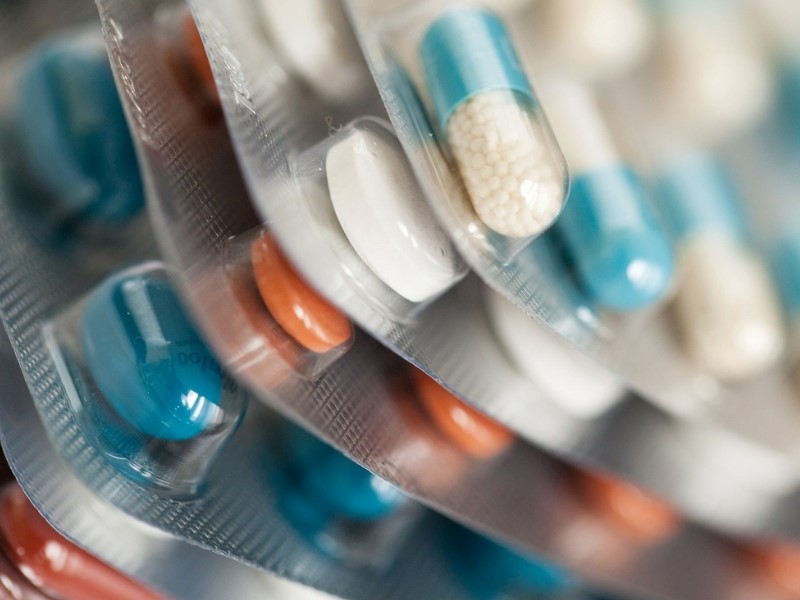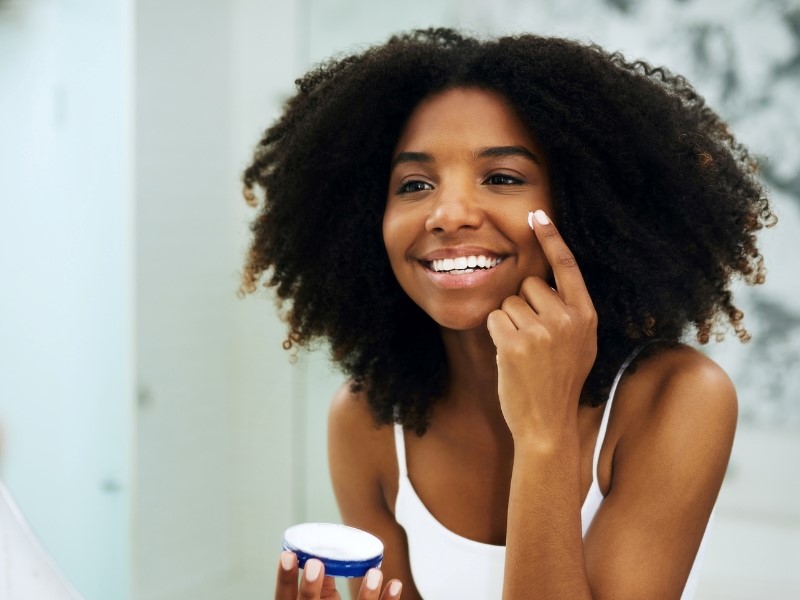Can antibiotics cause acne? It’s a question that many people ask themselves when they start taking antibiotics to treat various illnesses. While antibiotics are known to be effective in treating bacterial infections, they can also have side effects that can cause acne breakouts. In this article, we’ll explore the link between antibiotics and acne, as well as discuss the side effects of antibiotics that may lead to acne. If you’re curious about whether or not antibiotics can cause acne, keep reading to find out.
Do Antibiotics Cause Acne?
Antibiotics have been widely used for the treatment of acne for many years. They work by reducing inflammation and killing the bacteria that contribute to acne breakouts. However, there is some debate among dermatologists and researchers about whether antibiotics can actually cause acne.
The short answer is no; antibiotics do not cause acne. However, they can indirectly contribute to the development of acne by disrupting the delicate balance of bacteria in our gut. Antibiotics are designed to kill all bacteria, both good and bad, and this can lead to dysbiosis – a condition where the balance of bacteria in our gut is disrupted. Dysbiosis can result in a host of health problems, including skin issues like acne.

Furthermore, long-term use of antibiotics can lead to antibiotic resistance, where bacteria become resistant to the effects of the antibiotic. This means that the antibiotic is no longer effective in treating acne, and you may need to switch to a different medication.
Overall, while antibiotics themselves do not cause acne, they can indirectly contribute to the development of acne through their impact on gut health. As such, it’s important to carefully consider the potential risks and benefits of antibiotics as an acne treatment and to explore alternative treatments that may be less likely to disrupt gut health.
Antibiotics for Acne Side Effects
While antibiotics can be effective in treating acne, they do come with a range of potential side effects. Here are some of the most common side effects of antibiotics for acne:
- Upset stomach: Antibiotics can cause irritation and inflammation of the stomach lining, leading to discomfort, bloating, and other digestive issues.
- Diarrhea: Antibiotics can disrupt the balance of bacteria in our gut, leading to diarrhea and other gastrointestinal symptoms.
- Nausea: Nausea is a common side effect of many antibiotics and can be accompanied by vomiting in some cases.
- Vomiting: Some people may experience vomiting as a side effect of antibiotics, particularly if they are taking high doses or have a history of sensitivity to antibiotics.
- Yeast infections: Antibiotics can disrupt the balance of bacteria and yeast in our body, leading to an overgrowth of yeast and the development of fungal infections, such as thrush or vaginal yeast infections.

In addition to these common side effects, long-term use of antibiotics can lead to more serious health problems, such as liver damage, kidney damage, an increased risk of cancer, and, as mentioned, antibiotic resistance.
If you are experiencing any of these side effects or are concerned about the potential risks of long-term antibiotic use, it’s important to speak with your doctor or dermatologist. They may be able to recommend alternative treatments for acne, such as topical treatments or lifestyle changes, that are less likely to cause side effects or antibiotic resistance.
Alternative Treatments for Acne
While antibiotics are a common treatment for acne, there are several alternative treatments available that can be just as effective. Here are some alternative treatments for acne that you may want to consider:
- Topical Treatments:
- Retinoids: Topical retinoids are derived from vitamin A and work by unclogging pores and reducing inflammation. They are available in different strengths and formulations and can be applied directly to the skin.Benzoyl peroxide: This topical treatment works by killing the bacteria that cause acne and reducing inflammation. It is available over the counter in different strengths and formulations.
- Salicylic acid: Salicylic acid is a type of beta-hydroxy acid that works by exfoliating the skin and unclogging pores. It is available in different strengths and formulations and can be used alone or in combination with other topical treatments.
- Oral Treatments:
- Hormonal therapy: For women with hormonal acne, hormonal therapy may be an effective alternative to antibiotics. This type of therapy works by regulating hormones that can contribute to acne breakouts.
- Isotretinoin: Isotretinoin is a powerful oral medication that is used to treat severe acne that has not responded to other treatments. It works by reducing the size of the oil glands in the skin and reducing inflammation.
- Surgical Treatments:
- Chemical peels: Chemical peels work by exfoliating the top layer of skin and unclogging pores. They are available in different strengths and formulations and can be used to treat mild to moderate acne.
- Light therapy: Light therapy uses different types of light to reduce inflammation and kill bacteria that contribute to acne breakouts. It is available in different forms, including blue light therapy and red light therapy.

In addition to these treatments, there are also several lifestyle changes that can help improve acne, such as:
- Maintaining a healthy diet: Eating a diet rich in fruits, vegetables, and whole grains can help reduce inflammation and improve overall skin health.
- Avoiding harsh skin products: Harsh skincare products, such as scrubs and astringents, can irritate the skin and make acne worse.
- Managing stress: Stress can contribute to acne breakouts, so finding healthy ways to manage stress, such as exercise or meditation, can help improve acne.
While exploring various avenues to address acne, it’s important to consider all available options, including acne prescriptions. These specialized treatments, often prescribed by dermatologists, can offer targeted solutions for stubborn cases of acne. If you’re experiencing persistent breakouts or have not found relief with over-the-counter remedies, consulting a dermatologist for an acne prescription might be a promising step. Expert dermatologists, such as those at RemoteDerm, possess the knowledge and experience to evaluate your unique condition and recommend personalized prescription treatments that address the underlying causes of your acne.
Final Thoughts
In conclusion, while antibiotics can be an effective treatment for acne, they do come with a range of potential side effects that can impact your overall health and well-being. It’s important to carefully consider the risks and benefits of antibiotics for acne treatment and to work with your dermatologist to find the best treatment plan for your individual needs.
At Remotederm, we are committed to providing our clients with the best online dermatologist services in Canada. Our team of experienced dermatologists offers online dermatology consultation that are accessible from anywhere at any time.
FAQs
1. What is dysbiosis, and how does it relate to acne?
Dysbiosis is a condition where the balance of bacteria in our gut is disrupted. Antibiotics can disrupt this balance by killing both good and bad bacteria, and dysbiosis can result in a host of health problems, including skin issues like acne.
2. Can antibiotics make acne worse before it gets better?
It is possible for antibiotics to make acne worse before it gets better. This is because the medication is working to clear out the bacteria and reduce inflammation, which can initially cause a flare-up of acne. However, this is usually a temporary phase, and the acne should improve with continued use of antibiotics.
3. How long does it take for antibiotics to work on acne?
The length of time it takes for antibiotics to work on acne can vary depending on the individual and the severity of their acne. In general, it can take several weeks to see significant improvement in acne with antibiotics. It’s important to follow the prescribed dosage and duration of the antibiotics and to continue with any recommended topical treatments as well.

4 comments
I was prescribed antibiotics for a sinus infection and now I have acne all over my face. Is this normal? How can I get rid of it?
Acne is a possible side effect of some antibiotics, especially penicillin and its derivatives. It may be caused by an allergic reaction or a disruption of the skin’s natural balance of bacteria. To get rid of it, you may need to stop taking the antibiotic and consult your doctor for an alternative medication. You can also use gentle cleansers and moisturizers to soothe your skin and prevent further irritation.
This article was very informative. I didn’t know that antibiotics could cause acne by disrupting the balance of bacteria on the skin. What can I do to restore the healthy microflora?
We’re glad you found our article informative. To restore the healthy microflora on your skin, you can try using probiotics, either as supplements or topical products. Probiotics are beneficial bacteria that can help balance your skin’s ecosystem and fight off harmful microbes. You can also eat foods that are rich in probiotics, such as yogurt, kefir, sauerkraut, etc.